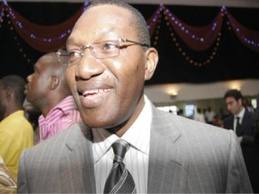Nigerian NGOs blame NUC for incessant ASUU strikes
With the ongoing industrial action by the
Academic Staff Union of Universities
(ASUU) clocking two months old today,
civic organizations in the country have
blamed the National Universities
Commission, NUC, for the state of
comatose in the country’s higher
institutions of learning.
The ASUU on July 2nd this year
embarked on another strike over the
refusal of the Federal Government to
honour the 2009 agreement on the
funding of universities and a subsequent
January 2012 Memorandum Of
Understanding she freely entered into with
the lecturers.
The group, which are 20 in number, did
not only blame the NUC for the incessant
agitation by ASUU, but added that “it is a
direct fall out of the embarrassing
abdication of its (NUC) responsibility”.
The groups include: Zero Corruption
Coalition (ZCC); Women Organisation for
Gender Issue (WOGI); CiviI Society
Legislative Advocacy Centre (CISLAC);
West African Civil Society Forum
(WACSOF); Publish What You Pay (PWYP)
Nigeria; National Procurement Watch
Platform (NPWP) and Independent
Service Delivery Monitoring Group
(ISDMG).
Others are Network on Police Reform in
Nigeria (NOPRIN); Public Interest Lawyers
League (PILL); United Action for
Democracy (UAD); Community Action for
Popular Participation (CAPP); Citizens
Centre for Integrated Development and
Social Rights (CCIDESOR); Community
Outreach for Development and Welfare
Advocacy (CODWA); Say No Campaign
Nigeria (SNCN); International Press
Centre (IPC); Coalition to Save Education
in Nigeria (COSEG); Feed Nigeria Initiative
(FENI); Greater Nigeria Movement (GNM);
Ethical Computing and Cyber Research
Centre (ECCRC) and Centre for
Responsible Engagement and Patriotism
(CREAP).
According to the civic groups, NUC was
lagging behind in its primary duty to the
Nigerian university system. They queried
the continuous existence of the body.
The National Universities Commission has
a duty as part of its functions as stated in
its enabling act to ‘… prepare periodic
master plans for the balanced and
coordinated development of all
universities in Nigeria; lay down minimum
academic standards in the federal
republic of Nigeria and accredit degrees
and other academic awards; ensure that
quality is maintained within the academic
programmes of the Nigerian university
system; advise the Federal Government
on the financial needs, both recurrent and
capital of university education in Nigeria;
undertake periodic review of the terms
and conditions of service of personnel
engaged in the universities and make
recommendations thereon to the Federal
Government as appropriate’.
On the basis of the aforementioned
responsibilities, the organizations
declared a vote of no confidence on the
NUC stating that over the years, it had
failed woefully in the discharge of its
primary function of ensuring standards
and advising governments on the needs of
the universities.
They emphasized that the NUC’s
abandonment of its primary duty of
regulation, ensuring standards and
calling the attention of the government to
the worsening decay in tertiary education
in the country triggered the incessant
ASUU strike.
Recall that the NUC got recently
enmeshed in contract awards,
management of scholarship funds and
directly managing the affairs of
universities in clear violation and breach
of extant laws.
These, the group pointed out, were among
the reasons the NUC had failed woefully
in saving the nation’s universities from its
current challenges.
Unfortunately, the incessant strikes,
according to the aggrieved civic
organizations, constitute a grave tragedy
to the immediate and long term economic
and social well-being of the nation.
Consequently, they called on the federal
government to, with immediate effect,
demonstrate the requisite political will to
respect the terms of the agreement which
it (FG) freely entered into with ASUU in
2009. This, they described as the
hallmark and minimum requirement for a
responsible and credible government.
They also called for the re-opening of the
collapsed negotiations with ASUU as
quickly as possible, while also setting in
motion all mechanisms necessary for
meeting the funding requirements of the
FGN/ASUU agreement of 2009




Comments
Post a Comment